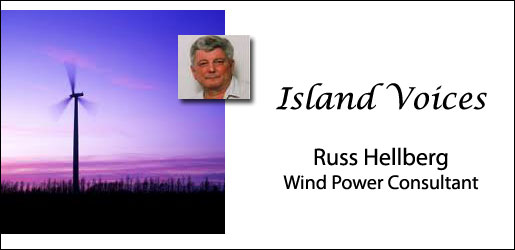Current Article ∙ Archive ∙ Back to Island Voices
April 2009:
Green Economy Conference: Run-of-River Hydro
On the 7th of April I attended the Green Economy Conference. It was a very positive event where a number of environmental leaders, businesses and organizations met to discuss the positive aspects of independent power producers. Scott Simpson does a very good job at summarizing the event in the following article. The conclusion was that we need more power and IPPs are the best avenue for producing more affordable power.
Run-of-river hydro critics are missing the big picture, organizer says
Scott Simpson
Vancouver Sun
April 8, 2009
Opponents of private-sector electricity development are at odds with global trends in power generation and climate protection, a green-economy conference heard Tuesday in Vancouver.
Simon Fraser University energy economist Mark Jaccard said there’s nothing unique in a global context about British Columbia’s adoption of private sector development of new electricity resources.
Speaking at a PowerUp Canada green-economy conference, the award-winning scholar and international government advisor said jurisdictions across the political spectrum are looking to venture capitalists to develop power.
“The development of small-scale renewables around the planet has been done almost entirely by private companies taking risk — independent power producers,” Jaccard said.
“This has happened in left-wing jurisdictions and right-wing jurisdictions. It’s happened where people really believe in public ownership of their energy system, like Quebec or Manitoba with an NDP government, and it has happened in much more right-wing areas as well.”
PowerUp executive director Tzeporah Berman, the conference organizer, described as “bizarre” the opposition to renewable power development — such as run-of-river hydroelectricity — among some environmental and public policy advocate groups.
“If we do not stop global warming from tripping into runaway climate change, huge tracts of the planet’s biodiversity and great swaths of human civilization are at risk,” Berman said.
“It is bizarre that we have come to a point where in B.C., an environmentalist speaking out in support of the expansion of renewable power in this province would be something controversial.”
Matt Horne, a program director with the Pembina Institute, said the B.C. government’s biggest success has been convincing the public of the need to shift to a green economy.
“You’ve got clear, simple signals saying green technologies are good, dirty technologies are bad,” Horne said.
Karen Graham, senior policy analyst with the Business Council of B.C., said the renewables industry can thrive if government creates a supportive environment.
“The most important thing for any jurisdiction is to have favourable hosting conditions. These factors are as relevant to developing green economy and green business as to any other sector. Things like reasonably competitive taxes, efficient and well-designed regulatory processes.”
Construction, Maintenance & Allied Workers Union Local 2020 president Dave Crosby said his union local supports BC Hydro’s recent call to the private sector for new renewable energy projects.
“For us, it means jobs. For us, it means work in our communities.”
Ecotrust Canada president Ian Gill said the organization will announce later this month the establishment of a new fund to finance independent power projects (IPPs).
“Why would a conservation organization do that? Because we believe the need for renewables is very much among us, and very present. We believe that IPPs are worth doing.”
Coastal First Nations executive director Art Sterritt called for a more measured approach to IPP development, saying Hydro’s current approach is “uncoordinated and not strategic.”
“From our perspective, it’s essentially a system of rolling the dice,” Sterritt said. “By placing a call out for proposals without criteria, without consideration for a long-term strategy related to a green economy, and without an export plan, it leaves first nations in a very precarious position.”
Same article on Vancouver Sun web site

